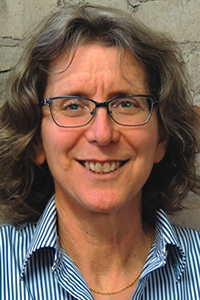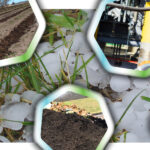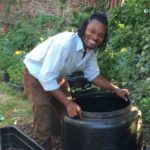
Nora Goldstein
BioCycle July 2019
My original goal for this 60th Anniversary Edition of BioCycle was to review the Table of Contents in every issue of BioCycle, originally named Compost Science, from Spring 1960 onward. The plan was to record the big moments in each decade for an article titled “Aha Moments That Shaped Organics Recycling.”
Suffice it to say, I did not attain my goal — starting with the reality that there are hundreds of Content pages, and not nearly enough hours to review them all. So I reined myself in, and reviewed the Contents in 5-year increments, from 1960 to 2015. Some article titles were so intriguing that I had to read them before moving on. Talk about “Aha Moments”! For example, articles in Compost Science and then BioCycle documented the multi-decade process of ending the ocean dumping of sewage sludge, the evolution of the U.S. EPA Part 503 biosolids rule, and the significant scientific research that anchors today’s regulations and practices.
Here are some very evident takeaways:
• Our Toolbox Runneth Over: Vast knowledge based on research and practice is at our fingertips. Decades were spent optimizing composting methods, finetuning control of odors and other emissions, developing equipment and systems to improve processing efficiency, build markets for compost and biogas, etc. We are well equipped to make organics recycling happen.
• Making Products, Not Managing Waste: In a May 2000 Editorial, I wrote: “We have to get away from the concept of organics recycling as a waste management alternative. There isn’t tremendous urgency in most parts of the country for waste management alternatives … Instead, we need to introduce organics recycling as a resource management alternative, a way to manage and improve our natural resources, particularly soil and water.” Those words are as true almost 20 years later, and must guide us going forward.
• Respect The Amazing Microbiology: The microbial underpinnings of composting, anaerobic digestion and direct utilization of residuals via land application are astounding and pretty darn resilient. So too are the microbial communities in the end products, which bring life back to soil, and help suppress plant diseases. These microbes are the workhorses of organics recycling, and must be given adequate time, especially over the course of composting and curing, to do their job.
• Research Matters, A Lot: As you read the BioCycle Trailblazer profiles, this takeaway becomes abundantly clear. Going forward, investment in research is crucial.
So much has been learned and accomplished over these past 60 years. We are excited to see what unfolds over the next 60.









